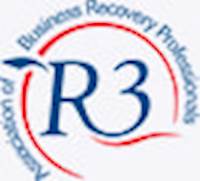- change in business environment
- poor financial management
- extension of too much credit
- rapid growth
- unexpected costs
- theft and fraud
- plain bad luck

1. Seek independent advice for a failing company
When profitability appears in decline, it is the optimum time to seek independent advice and answers.
There are plenty of reputable places to look: a charity, HMRC and the government website. We will also provide initial advice free of charge.
2. Review significant sized payments
Until you have sought independent advice, review making large payments for two key reasons.
Firstly, it may be that injecting new funds into a failing company could see them quickly disappear and not alter the outcome. Those funds may achieve an alternative successful outcome, being injected into a voluntary arrangement (CVA / CVL) or a new co.
Secondly, it can prove important that once insolvency threatens, directors treat creditors equally (pari passu). An unfair preference payment to a creditor and in particular a director of a failing company, can lead to personal liability.
3. Collect debts for a failing company
In unusual time times like COVID, customers who may themselves be under financial pressure, may withhold payments. Be ready with a plan for remedial action to respond. Early steps under the Late Payment of Commercial Debts (Interest Act 1998) can help compensate for delays and maximise your receipts.
4. Take stock of the company’s financial position
Be up to speed with your profit and loss and balance sheet position. This critical information will summarise revenues, costs and expenses for a period. Also it will highlight whether assets cover liabilities.
5. Recognise if it is time to stop trading a failing company
Be realistic. Do not be tempted take on more debt, if you know your company is unlikely to recover or is already insolvent. The consequence of trading wrongfully, can be significant:
- disqualification from acting as a director
- personal liability
The best advice when managing a failing company is to seek advice. We are licensed insolvency practitioners and can help with time to pay arrangements, business funding, dealing with creditors, restructure / debt consolidation and exit strategy / closing a company.



